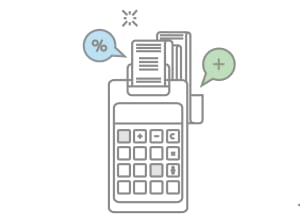The obligation to issue invoices using the National e-Invoicing System will be created with the entry into force of the relevant provisions, i.e. as of 1 July 2024, and will apply to taxpayers having a seat or fixed establishment in Poland who are required to issue VAT invoices to both Polish and foreign companies.
UPDATE!
On 26 April 2024, the Polish Ministry of Finance postponed the effective date for mandatory invoicing in the National e-Invoicing System (KSeF) to 2026. From 1 February 2026, KSeF is going to be obligatory for entities whose value of turnover in the previous year exceeded the amount of PLN 200 million, and from 1 April 2026 – for all entrepreneurs.
Who will be obliged to issue structured invoices and under what circumstances?
The obligation of using structured invoices will apply to taxpayers with a seat or fixed establishment in Poland, who, in connection with their business activity, are required to issue VAT invoices in accordance with Polish regulations.
What it means is that both Polish taxpayers and foreign taxpayers with a fixed establishment in Poland will be obliged to issue structured invoices.
However, the obligation to issue structured invoices shall not apply to:
- taxpayers without a business seat or fixed establishment for VAT purposes in Poland;
- taxpayers without a seat in Poland, having a fixed establishment for VAT purposes in Poland, but this fixed establishment is not involved in the supply of goods or services;
- taxpayers who apply special procedures referred to in Section XII, Chapters 7, 7a and 9 of the VAT Act (including non-EU procedure for certain services, the special procedure for the provision of international occasional road passenger transport services and the special procedure for distance sales of imported goods);
- taxpayers issuing invoices only to natural persons.
Optionally, structured invoices can be issued by:
- taxpayers who do not have a seat or fixed establishment in Poland (excluding taxpayers applying special procedures);
- taxpayers issuing VAT RR invoices confirming the purchase of agricultural products and services from farmers taxed with flat-rate.
Structured invoices will document the supply of goods and services to businesses (B2B) and government authorities (B2G).
Learn more about VAT invoices
Will there be any fines for taxpayers who fail to comply with structured invoicing obligations?
The law provides that the head of the tax office may issue a decision imposing a financial penalty if the taxpayer:
- has failed to issue an invoice using KSeF (which will be deemed as a failure to issue an invoice);
- during a failure of KSeF, has issued an invoice in electronic format that is not in line with the template provided;
- has failed to send to KSeF invoices issued during a system failure by the specified deadline.
The fine shall amount:
- up to 100% of the amount of tax shown on the invoice;
- up to 18.7% of the total amount due as shown on this invoice (for an invoice where no tax is shown).
The regulations on fines will enter into force on 1 July 2024.
What simplified procedures will be in place for structured invoicing?
- In order to reduce the taxable amount and the output tax, taxpayers will not be required to have documentation confirming that they have agreed the conditions for the reduction of the taxable amount with the purchaser of goods or services and that these conditions have been met.
- The purchaser will be obliged to adjust the input tax for the period in which they received the corrective structured invoice.
- Where a taxpayer issues two or more invoices to the same recipient, these documents shall be assigned an aggregate ID.
- Taxpayers issuing structured invoices will no longer be required to submit JPK_FA and JPK_FA_RR to tax authorities.
What to look out for when implementing structured invoicing?
- A corrective invoice will have a separate system number, different from the KSeF number.
- The obligation to issue adjustment invoices in KSeF to invoices originally issued outside this system will be in place.
- Any adjustment structured invoice should include a number permitting to identify the invoice to which the adjustment invoice relates in KSeF.
- It is important that you agree how structured invoices shall be delivered to recipients in the event when:
- the place of service provision is either a Member State other than Poland or a third country,
- a structured invoice documents the export of goods or the intra-Community supply of goods;
- the recipient of the invoice is an entity that does not have its seat or fixed establishment in Poland;
- the invoice recipient is not obliged to use the National e-Invoicing System.
- In the event of a system failure, the taxpayer shall issue invoices in electronic format (in accordance with the template provided) and send them to the recipient in a manner agreed with them. The method of marking these invoices shall be specified in a regulation. In addition, the taxpayer shall be required to send these invoices to KSeF within 7 business days of the end of the failure.
- KSeF and PEF (i.e. E-Invoicing Platform with e-invoices used in public procurement) will be integrated.
What other changes are introduced by the KSeF amendment?
- The 60-day deadline for a VAT refund has been replaced with a 40-day refund deadline.
- There is no longer the obligation to retain and archive invoices – invoices will be stored in the KSeF system for 10 years (this period running from the end of the year in which they were issued).
- There is no longer the obligation to deliver JPK_FA files at the request of tax authorities.
- There is no longer the necessity to issue a duplicate copy of an invoice.
- There is no longer the obligation to issue an advance invoice where the taxpayer receives the whole or part of the payment for the activity in the same month in which they performed this activity.
- Invoices issued with cash registers shall no longer be recognised as invoices in the meaning of the VAT Act (starting from January 2025).
- An active VAT taxpayer making payments for structured invoices to another active VAT taxpayer via a bank account or an account in a cooperative savings and credit union shall be required to provide the ID of structured invoices in KSeF (or the aggregate ID of invoices generated in KSeF). This shall be applicable to payments made from 1 July 2024.
- The recipient making payments with the split payment mechanism can make a payment for a couple of selected structured invoices provided that they provide their aggregate ID generated by KSeF.





